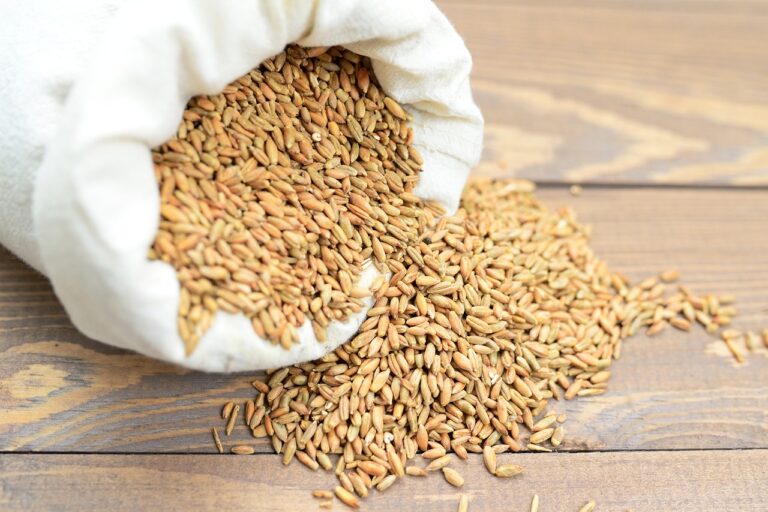Advances in Beverage Production Energy Efficiency
cricketbets999.com login, 11xplay reddy login, betbhai 9.com:Advances in Beverage Production Energy Efficiency
When it comes to beverage production, energy efficiency is a crucial factor that companies are constantly striving to improve. Not only does maximizing energy efficiency reduce costs and increase profitability, but it also helps to reduce the carbon footprint of the beverage industry as a whole. In recent years, there have been significant advances in technology and practices that have helped beverage producers to become more energy-efficient. In this article, we will explore some of these advances and how they are shaping the future of beverage production.
Reducing Water Usage
One of the key areas where beverage producers have been able to improve energy efficiency is in reducing water usage. Water is a precious resource, and the beverage industry is one of the biggest consumers of water in the world. By implementing water-saving technologies such as recirculation systems and water-efficient cleaning processes, companies can significantly reduce their water consumption and the energy required to treat and transport that water.
Using Renewable Energy Sources
Another important advance in energy efficiency in beverage production is the increasing use of renewable energy sources such as solar, wind, and hydroelectric power. By harnessing the power of the sun, wind, and water, beverage producers can reduce their reliance on fossil fuels and lower their carbon emissions. Many companies are also investing in energy storage technologies such as batteries to store excess energy generated from renewable sources for use during peak production times.
Optimizing Equipment and Processes
Advances in technology have also enabled beverage producers to optimize their equipment and processes to minimize energy consumption. For example, the use of energy-efficient lighting, motors, and heating and cooling systems can significantly reduce energy usage in production facilities. Companies are also investing in automation technology to streamline processes and minimize energy waste. By continuously monitoring and optimizing their equipment and processes, beverage producers can identify areas for improvement and implement energy-saving measures.
Embracing Sustainable Packaging
In addition to improving energy efficiency in production processes, beverage producers are also focusing on sustainable packaging solutions to reduce their environmental impact. Packaging materials such as glass, aluminum, and PET can have a significant energy footprint due to their production and transport. Companies are exploring alternative packaging materials such as bio-based plastics, paperboard, and compostable materials to reduce energy consumption and waste. By embracing sustainable packaging practices, beverage producers can further reduce their carbon footprint and appeal to environmentally-conscious consumers.
Investing in Energy Management Systems
To effectively monitor and control energy usage in beverage production facilities, companies are increasingly investing in energy management systems (EMS). These systems collect data on energy consumption in real-time and provide insights into where energy is being used most efficiently. By utilizing EMS, beverage producers can identify energy-saving opportunities, track energy usage trends, and optimize energy usage based on production schedules. This proactive approach to energy management is essential for maximizing energy efficiency and minimizing costs.
Collaborating with Suppliers and Partners
To further enhance energy efficiency in beverage production, companies are collaborating with suppliers and partners to identify and implement sustainable practices throughout the supply chain. By working together to optimize transportation routes, reduce packaging waste, and improve energy efficiency in shared facilities, beverage producers can collectively reduce their environmental impact and create a more sustainable industry. By fostering partnerships focused on energy efficiency, companies can leverage collective resources and expertise to achieve greater results than they could individually.
In conclusion, advances in beverage production energy efficiency are shaping the future of the industry by reducing costs, lowering carbon emissions, and enhancing sustainability. By focusing on reducing water usage, utilizing renewable energy sources, optimizing equipment and processes, embracing sustainable packaging, investing in energy management systems, and collaborating with suppliers and partners, beverage producers can achieve significant improvements in energy efficiency. As the beverage industry continues to evolve, it is essential for companies to prioritize energy efficiency and sustainability to meet the growing demand for environmentally-friendly products. By adopting innovative technologies and practices, beverage producers can lead the way in creating a greener and more efficient future for the industry.
FAQs
1. What are some examples of renewable energy sources used in beverage production?
Some examples of renewable energy sources used in beverage production include solar, wind, and hydroelectric power. These sources help to reduce reliance on fossil fuels and lower carbon emissions.
2. How can beverage producers reduce water usage in their facilities?
Beverage producers can reduce water usage by implementing water-saving technologies such as recirculation systems, water-efficient cleaning processes, and leak detection systems.
3. What are some sustainable packaging materials being used in the beverage industry?
Some sustainable packaging materials being used in the beverage industry include bio-based plastics, paperboard, and compostable materials. These materials help to reduce energy consumption and waste in packaging production.
4. How can energy management systems help beverage producers improve energy efficiency?
Energy management systems help beverage producers monitor and control energy usage in real-time, identify energy-saving opportunities, track trends, and optimize usage based on production schedules.
5. Why is collaborating with suppliers and partners important for energy efficiency in beverage production?
Collaborating with suppliers and partners is important for beverage producers to identify and implement sustainable practices throughout the supply chain. By working together, companies can collectively reduce their environmental impact and create a more sustainable industry.







